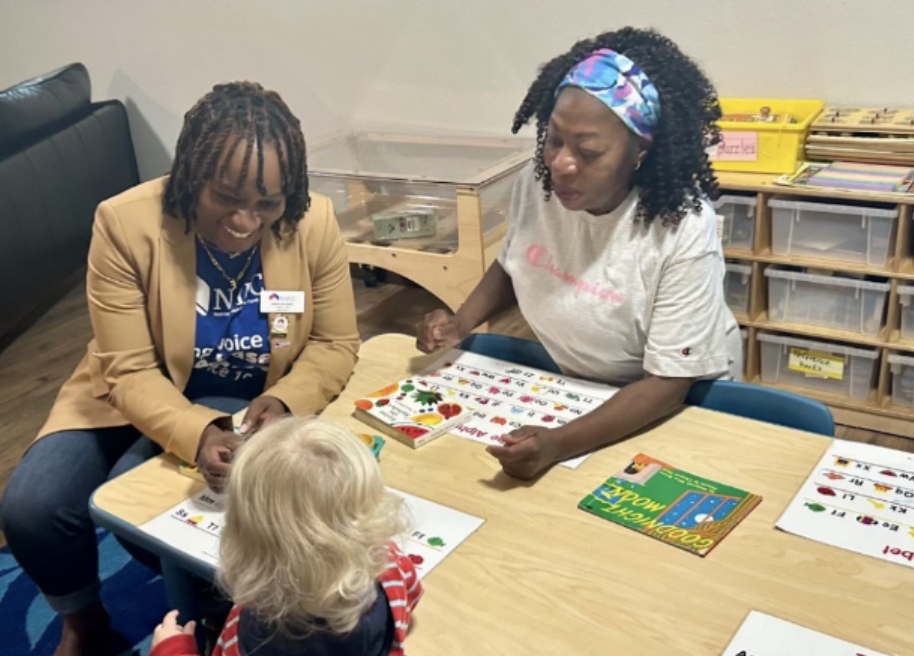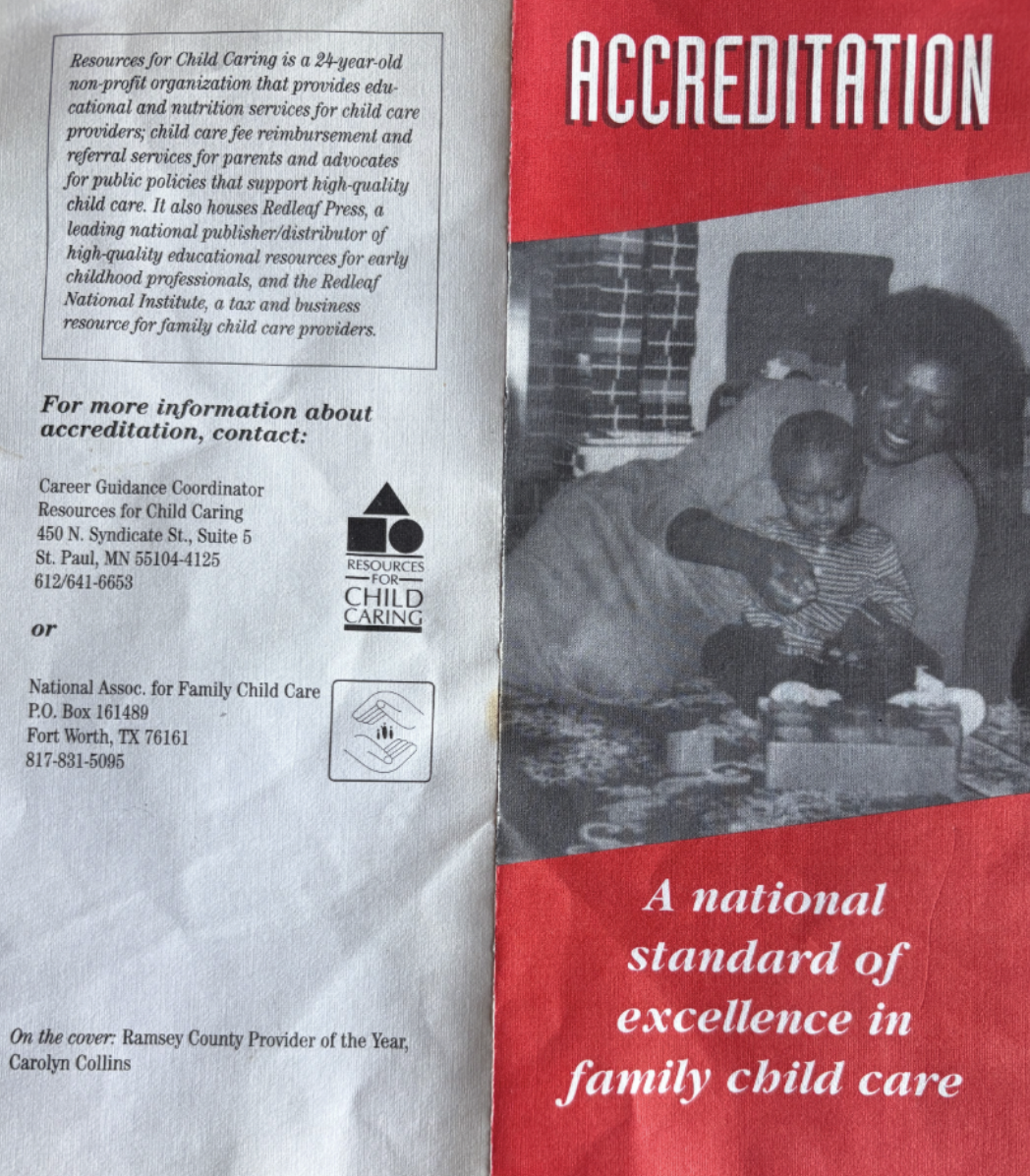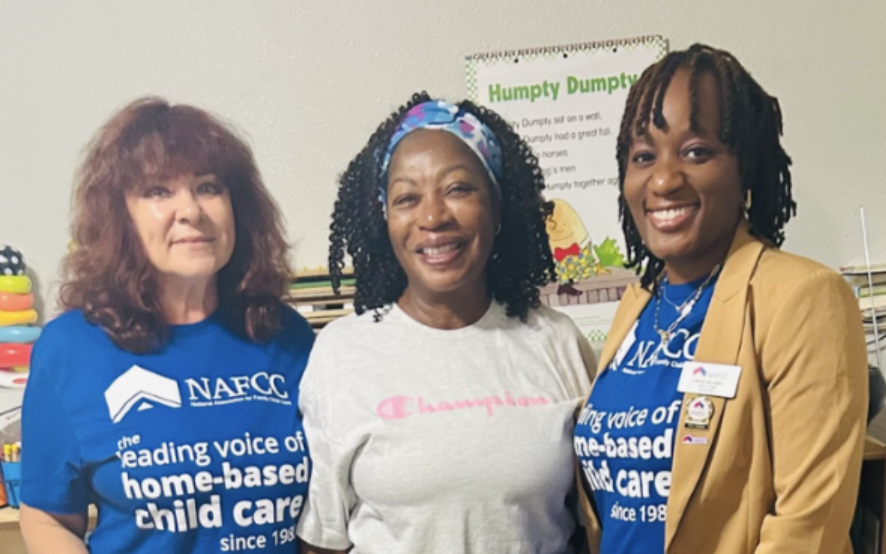By Eboni Delaney, Interim Director of Policy and Movement Building, NAFCC
“I have no regrets. This journey has been full of laughter, joy, and upside-down wonders.”
For Carolyn Collins, a veteran early childhood educator in St. Paul, Minnesota, family child care began as a temporary solution, but it grew into a lifelong calling. What started in 1983 as a plan to stay home with her youngest child quickly evolved into a powerful and enduring career.
“I couldn’t leave my child in a care setting where I wasn’t sure she’d be loved and safe,” Carolyn recalls. “So, I thought, what if I started my own?” Driven by both love and necessity, Carolyn opened her own child care program. Decades later, she’s still running it and still impacting lives.
From the beginning, Carolyn’s approach emphasized empathy and connection. Having witnessed poor care experiences for her older children, she vowed to create something better for her daughter and for the many children whose parents shared her worries. “I knew other families were nervous about their children’s safety and well-being. I wanted to give them peace of mind.”
Carolyn’s program quickly became more than a business. It became a community. Over the years, she’s welcomed infants, guided preschoolers, supported families through milestones, and celebrated her former students’ achievements as they grew into thriving high school graduates.

But Carolyn’s journey did not stop with providing care. In 2004, she connected with the Hallie Q. Brown Community Center and met a child care coordinator who introduced her to the CDA (Child Development Associate) Credential and NAFCC accreditation. That moment transformed her path.
“I loved the idea of elevating myself in the field,” Carolyn recalls. She pursued both credentials with determination and was later featured on the cover of a NAFCC pamphlet by Resources for Caring, now known as Think Small. Over time, she became a CDA advisor and proudly maintained NAFCC accreditation for more than 20 years, setting a standard of excellence for herself and inspiring others to follow.

Still, Carolyn was not finished. Although she had built a career full of impact, she felt a deeper desire for recognition, not just from others but within herself. “I realized I had come far,” she shares, “but not far enough to truly receive the respect of my position.”
She made a bold decision to earn her college degree in Early Childhood Education Studies. With the support of the TEACH program, she enrolled at Metro State University while balancing full-time child care, coursework, and her responsibilities as a foster parent.
“It was not easy. I studied at night, went to school on weekends, and spent hours in the study labs. But I would not stop until I earned that degree.” Carolyn’s dedication paid off. After completing her internship and final review, she walked across the graduation stage feeling, in her words, “nervous, excited, and overjoyed.”

Carolyn’s story reflects a journey that many family child care educators are navigating today: pursuing higher education while running their businesses, raising families, and meeting licensing and accreditation requirements. This aligns with a core NAFCC policy goal: removing barriers to higher education, especially for educators who are working full time or returning to school later in life.
Carolyn’s determination to turn years of lived experience into a formal degree is more than inspiring. It represents a workforce that deserves real investment, recognition, and support. Her graduation was not only a personal milestone, it transformed her practice. Carolyn redesigned her program from top to bottom, improving her environment, supplies, and curriculum. Today she proudly holds a 4-Star Parent Aware Rating and continues to refine her work with a strong focus on early learning.
“National Accreditation was the anchor behind my achievements,” she says. “It helped me build the foundation that made all of this possible.”
Carolyn now stands as a shining example of what it means to lead with purpose, grow with intention, and never stop believing in your own potential. Her story is a reminder that family child care is not a fallback. It is a profession, a passion, and a powerful force in the lives of children and families.



